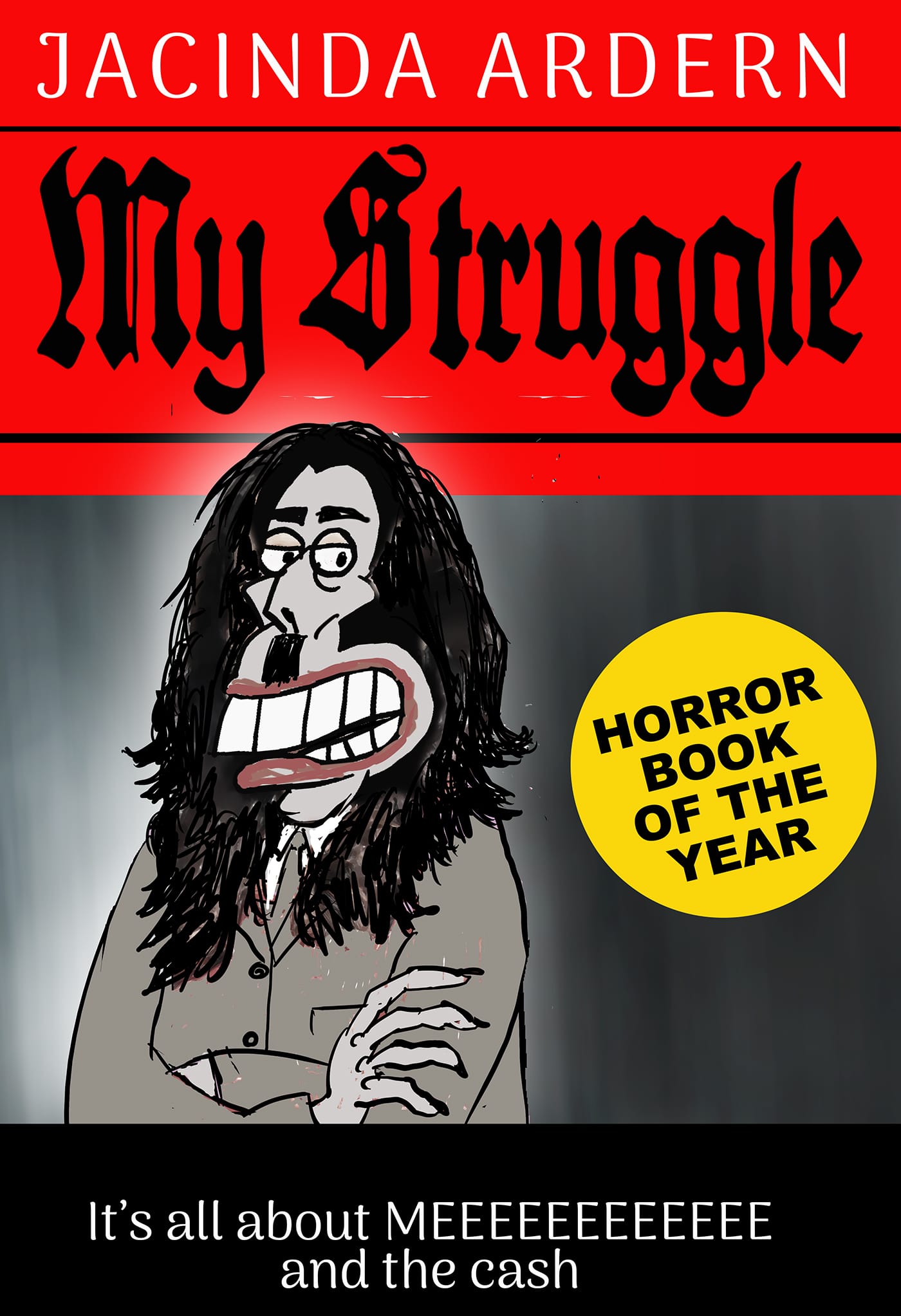Table of Contents
Graham Adams
Graham Adams is a freelance editor, journalist and columnist. He lives on Auckland’s North Shore. This piece was first published at The Platform
Ministers are pretending the former PM has simply vanished.
Late last week, Tova O’Brien asked Grant Robertson on her Stuff podcast if Jacinda Ardern should be “rolled out” to “galvanise the base” to help save Labour’s faltering campaign.
Robertson laughed. ”I’m sure for Jacinda the last thing on her mind is the election.”
O’Brien: “Her absence feels so conspicuous. It feels like either you think she’s too toxic or she doesn’t want to be associated with this loser Labour Party.”
Robertson: ”I’m sure she’s very supportive of us. She certainly said she was. And I believe her about that.”
Robertson’s comments about his longtime friend and close political colleague seemed designed to give the impression that the former Prime Minister is no longer connected to Labour MPs in any way and hasn’t even communicated with them — or him — for some time.
You’d easily get the impression that he doesn’t even know where Ardern is or what she is doing — even if he believes she would be feeling warm towards her former colleagues, wherever she is.
The fact is, Ardern is almost certainly at Harvard — and Robertson must know this. Why the secrecy?
In April, when it was announced Ardern had been appointed to three Harvard fellowships, the news was reported around the globe — from the Hindustan News and the BBC to CNN and The Australian. She was to take up the prestigious roles for the fall semester.
When I emailed Harvard’s communications team three weeks ago to ask when the fall semester began, given that Ardern was reportedly starting at that time, I received a prompt response: “Yes, it is September through December. It gets more complicated in the fine print; some Harvard graduate schools start in August. But safe to say September through December.”
However, follow-up emails asking for details of Ardern’s duties and opportunities as a fellow — including one sent to the journalist at The Harvard Crimson, the college’s student newspaper, who had enthusiastically covered the announcement of the fellowships in April — have gone unanswered.
Ardern’s comms person also hasn’t responded to an email asking about her fellowships.
It seems likely that Ardern has asked for a media ban — which would be perfectly reasonable if she were simply a former Prime Minister pursuing her life after politics as a private citizen. But that isn’t the case. Through her leadership of the Christchurch Call, which she initiated after the mosque massacres in 2019 to limit terrorism online — she’s a political player who wants to impose stricter censorship on the world.
One of her fellowships is at the Harvard Law School, where, the Crimson reported, “She will study artificial intelligence regulation and risks, as well as improvements to accountability standards for extremist online content”.
Ardern’s views on censorship — including to control climate-change “denialism” — alarmed many commentators after she spoke at the UN in September last year. At the podium in New York, she implored the diplomats seated before her to act against “mis- and disinformation online”, which she rated every bit as dangerous as bullets and bombs.
Left-wing journalist Glenn Greenwald was direct in his assessment. In a tweet to his 1.8 million followers, he said:
“This is the face of authoritarianism — even though it looks different than [what] you were taught to expect. And it’s the mindset of tyrants everywhere. This is someone so inebriated by her sense of righteousness and superiority that she views dissent as an evil too dangerous to allow.”
Brendan O’Neill, editor of UK website Spiked, tweeted to his 138.5k followers:
“Ms Ardern’s UN speech exposed the iron fist of authoritarianism that lurks within the velvet glove of wokeness… Words wound, ideas kill — that’s the hot take of this globe-trotting luvvie against liberty.”
Given Ardern’s star status — at least outside New Zealand — and her international influence, anyone who cares about free speech and censorship should take an interest in what our former Prime Minister is saying and who she is meeting for talks.
Ardern hasn’t posted on her social media accounts since early August but her cover was blown in the weekend by Canadian Prime Minister Justin Trudeau, who tweeted a short clip of Ardern entering a room marked with the New Zealand and Canadian flags, to be enveloped in a warm embrace. Trudeau said:
“For years, my friend Jacinda Ardern and I worked closely together on issues that matter to Canadians and New Zealanders. Today, we kept that work going — we’ll continue to work on countering violent extremism and implementing the Christchurch Call.”
One of the topics on the agenda at the 2023 Global Progress Action Summit meeting hosted by Trudeau was climate change. Consequently, a Rebel News Canada reporter decided he’d ask Ardern as she entered her hotel in Montreal: “How much fossil fuels did you burn coming here to talk about climate change?”
Ardern initially smiled as she approached the videographer but quickly walked away as she realised his intention was to expose what is widely regarded as hypocrisy — namely, leaders who fly around the world to lecture others on the damage that fossil fuels are allegedly doing to the planet. A jumpy government staffer prevented the journalist from questioning Ardern further, warning: “Just leave the former prime minister alone.”
It is not only New Zealand’s Labour Party who will be hoping Ardern doesn’t receive too much bad publicity in the weeks ahead. She has been contracted to write a book on leadership by Penguin Random House in New Zealand and Australia with rights sold to territories including the US and UK.


The bible of the book trade, The Bookseller, noted in late June that translation rights had also been sold to Brazil, France, Germany, Holland, Italy and Portugal.
There is a lot at stake. Ardern has been offered an advance estimated at between $1 million and $1.5 million. One publishing insider reckoned that her publishers would be hoping to sell more than 250,000 copies worldwide.
While a publication date for the as-yet untitled memoir has not been announced, its publisher described the book as “full of warm and humorous stories, advice, and insight”. It adds that it “carries forth the idea that you can be your own kind of leader and still make a difference”.
The Labour politicians taking a shellacking in the trenches back in New Zealand in the closing weeks of their campaign must marvel at how Ardern’s determination to be her “own kind of leader” has played out for her. They will be particularly aware of her exquisite timing in abandoning the battle for her government’s re-election.
By quitting national politics eight months before Labour’s likely defeat in October, she has ensured her reputation will not be tarnished by association. Even better, Ardern has skipped away with a damehood — despite repeatedly professing to be a Republican — and with a handsome payday from her publisher coming her way.
At the end of her valedictory address in Parliament in April, Ardern said she hoped her career showed that, “You can be anxious, sensitive, kind, and wear your heart on your sleeve. You can be a mother, or not, you can be an ex-Mormon, or not, you can be a nerd, a crier, a hugger, you can be all of these things, and not only can you be here, you can lead, just like me.”
Ardern’s voice quavered at the close — perhaps overwhelmed by her own goodness — but she really should have added that it helps if you’re shrewd as well. She is certainly shrewd enough to stay well away from the spotlight as the ordure from her five years as Prime Minister hits the fan for Labour. And given her polarising effect on voters, Labour’s grandees seem keen on her staying mostly invisible as well.









